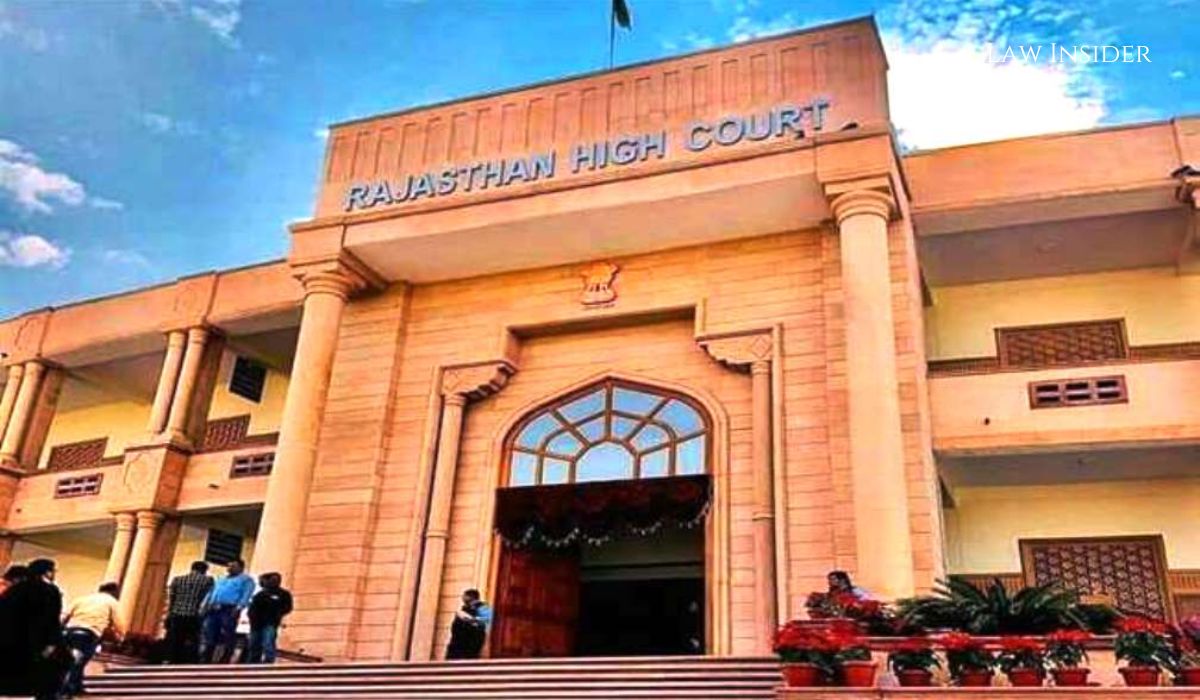Bhuvana Marni
Published on: October 17, 2022 at 22:52 IST
The Rajasthan High Court granted 15-day parole to a life convict based on a plea submitted by the offender’s wife, who is issueless and wants to keep her marriage to the convict and preserve her lineage.
Due to the convict’s youth, Justices Sandeep Mehta and Sameer Jain decided to grant him parole in exchange for a personal bond in the sum of Rs. 2 lakhs and two surety bonds in the amount of Rs. 1 lakh each.
Brief Case
The current appeal was submitted by a woman under the Rajasthan Prisons (Release On Parole) Rules, 2021 on behalf of her husband, who was convicted in June 2022 and is currently serving a life sentence under Sections 363, 366, and 376 (3) of the IPC and 3/4(2) of the POCSO Act.
To preserve their lineage, by religious and cultural tenets, and for humanitarian reasons, the convict was asked to be released on urgent parole so that his wife may become pregnant.
The defendant has reportedly served more than two years in jail with remission, according to evidence presented to the court.
The State, however, contested the petition and argued that the woman’s husband’s release would be detrimental to society because he was found guilty under the POCSO Act of committing offences that are severe in nature.
He further said that there is no provision under the Rajasthan Prisons (Release On Parole) Rules, 2021, for the petitioner to be released on emergent parole due to a lack of progeny.
High Court’s Observations
The Court first cited (and further relied upon) the High Court’s decision in the case of Nand Lal Through His Wife Rekha vs. State of Rajasthan, in which this very issue was raised and the Court’s division bench had determined that a prisoner would have the right or wish of having children if they so desired.
In the Nand Lal case, the bench of Justice Sandeep Mehta and Justice Farjand Ali had determined that denying the convict-prisoner the opportunity to perform a conjugal connection with his wife, namely for the purpose of progeny, would negatively damage his wife’s rights.
In that specific situation, the court had given the offender 15 days of parole for the benefit of his or her offspring.
The court granted the writ petition and ordered the convict’s emergent parole for fifteen days in light of these peculiar circumstances and the young convict’s wife’s filing of the petition, who is issueless and wants to keep her marriage to the convict (who is serving a lengthy sentence) and preserve the lineage.
The Rajasthan Government appealed the division bench’s decision in the Nand Lal case to the Supreme Court because it contravened the Rajasthan Prisoners Release on Parole Rules, 2021 (2021 rules), given that the convict in that particular instance had been found guilty of murder.
The State Government contended that a person convicted under Section 302 of the IPC has been mandated and regarded as ineligible for release on parole. Section 16 (1) of the Parole 2021 rules specifically lists the following: ineligibilities for the release of inmates on parole.
Additionally, it was asserted that the Respondent, in this case, was ineligible because, according to Section 17(d) of the 2021 rules, life sentences are to be counted as 20 years for these rules even though he had only served 6 years and 6 months of his sentence.
In addition, the Rajasthan High Court’s ruling was overturned by the Apex Court in August 2022 since the 15-day parole term had already passed.
The Supreme Court had stated, however, that it had “reservations” regarding several of the findings made in the High Court’s ruling.
Notably, the Supreme Court has instructed the State Government to present its arguments with the high court in the case of future applications for parole or furlough while refusing to “interfere” with the ruling and directives of the Rajasthan High Court.

